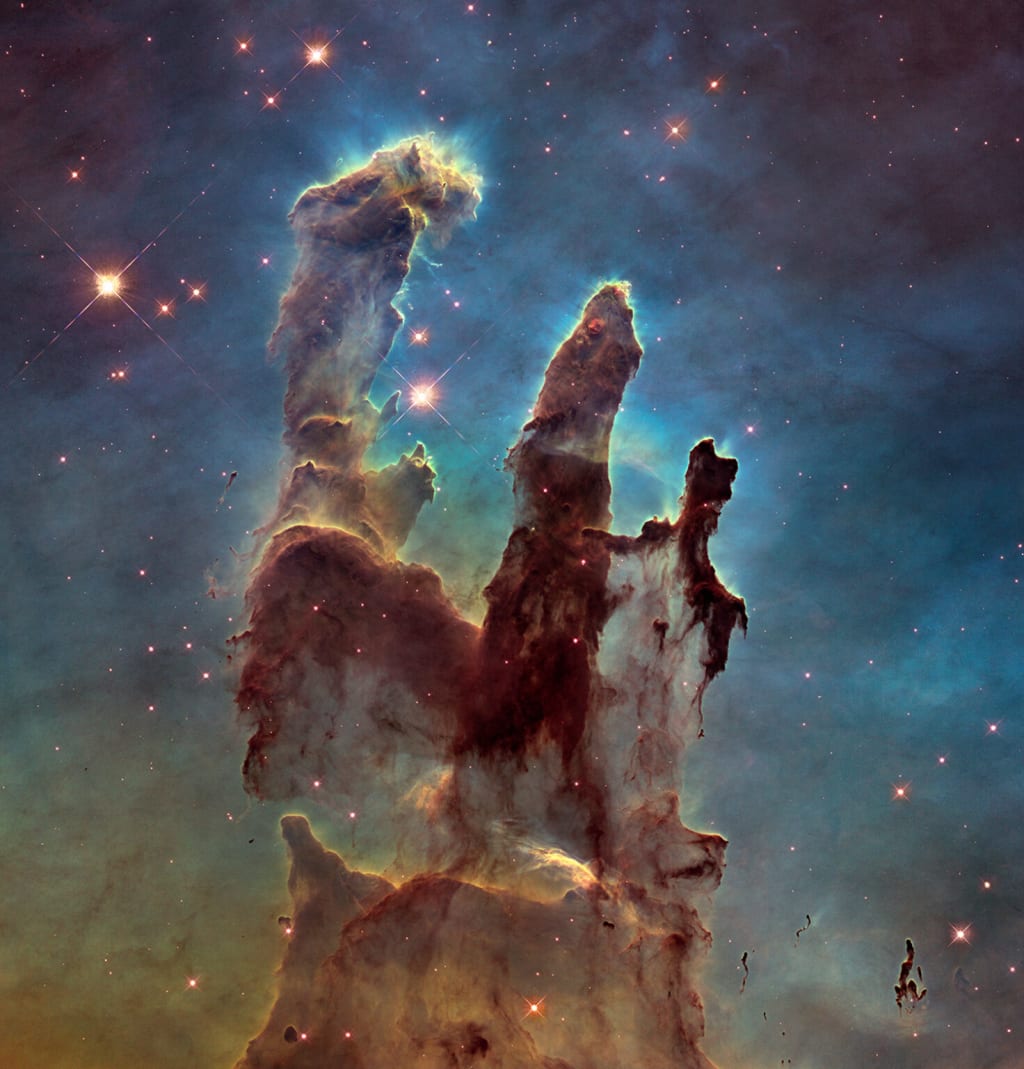How to understand all the talk about a “crisis in cosmology”
Different from other sciences is cosmology. When we have a different perspective on the universe, we also have a different grasp of philosophy and science

Every human society has an origin "myth," a story about how the Universe was created and how it came to be the way it is now, since humans require origin tales. But science, which we moderns invented, is a very potent means of engaging with the rest of the world.
The standard model of cosmology is the first chapter in our scientific origin tale. It is rightfully seen as a victory of logic and the human imagination. But recently, the notion of a "crisis in cosmology" has drawn attention in light of fresh evidence and other theoretical issues. This essay, the last in a series I've been writing for Big Think, is intended to provide a sort of summary of where we stand at the moment with respect to that topic.
Is there a crisis in cosmology?
This effort at a summary also follows an opinion piece Marcelo Gleiser and I just published on the issue for the New York Times. It attracted a lot of attention, thankfully generally positive, but the important thing to remember is that it was influenced by and informed by the subjects I have been delving into in this series. Today, I want to go into more detail about a few of the points we made there and relate them to what we have been discussing in this section as we examine the current condition of the standard model.
Let's begin with the view from 10,000 foot (or perhaps 10,000 parsecs). I started this series after reading Fulvio Melia's really fascinating work, "A Candid Assessment of Standard Cosmology." The evaluation Melia gives is largely unfavorable. He explains it like way: "The standard model needs a complete overhaul in order to survive."
I was actually directed to this paper by a nice essay on it by Ethan Siegel, who, though he disagreed with Melia's pessimism, looked favorably at the issues Melia raised, stating that, "There are incontrovertibly very real problems within the concordance model of cosmology, whether you think it needs a complete overhaul or not... It's critical to acknowledge that there are significant knowledge gaps, some of which may hold the key to a deeper comprehension of the cosmos as a whole.
In his study, Melia outlined a number of theoretical and empirical issues with the mainstream model that he believes provide significant concerns. These include the now-famous and difficult Hubble tension, the issue of galaxy and black hole creation too early, the issue of beginning circumstances and entropy, as well as issues with inflation and the cosmic microwave background. I tried to investigate some of these concerns in the earlier entries in this series. Melia agrees that the standard model does exhibit some stunning triumphs in terms of the fit between the data and theory in the wake of their entirety. However, he contends that some of this success is due to the model's abundance of knobs (free parameters), which prevents us from learning anything basic by fine-tuning their values through observations.
Therefore, the query "Is there or is there not an actual crisis in cosmology?" appears to depend on how strongly one believes in the standard model as it is right now. There definitely seem to be some "unquestionably very real problems," in my opinion. However, the intriguing part comes after that. As a means to wrap off our series, I want to go into more detail about what Marcelo and I were examining in our op-ed.
Cosmology is unlike the other sciences
What happens if we actually need to change cosmology? is the query Marcelo and I wanted to investigate. Here, it's important to keep in mind that cosmology is distinct from other disciplines. The creators of the scientific method were eager to demonstrate how you might isolate specific regions of the earth and then conduct controlled tests on them back in the 15th and 16th centuries. This phenomena was described as "vexing" by Francis Bacon. In essence, you isolate the object you wish to analyze before poking it. The technique is excellent for lab investigations in particle physics, chemistry, and biology. In geology or astronomy, for example, you cannot isolate or even control your subject of research, but you may look at several samples of it to derive statistical inferences. Look at several different volcanoes if you're curious in how they operate. Look at a variety of stars if you're curious about how stars operate.
However, cosmology is a very other game. We view the universe as the sum total of everything. Therefore, you are limited to the world we live in, which contains all space, time, matter, and energy, unless you wish to create a number of unobservable universes that allow you to think you can do statistics on them. The word "all" in that last statement is what truly emphasizes how significant it is to have to restart a cosmological model. The creation and evolution of everything can only be addressed by a small number of logical solutions, as Marcelo demonstrated in his book The Dancing Universe. Each of them poses unique philosophical problems, such as what it means to create the Universe out of "nothing." What even does the word "nothing" mean? Can nothing exist in reality? Because of this, any significant shift in cosmology may force us to confront some difficult philosophical issues that have been circling in people's minds for ages.
Another potential exists, though, and we may explore it here as well. Marcelo and I were cautious to discuss it often. Finding modifications to the model may be all that is required to address the issues with the conventional model. That has, in a way, been taking place for the past 40 years. The connection between the early and current Universes was shown to have a number of contradictions by the traditional Big Bang model, thus inflation was added.We introduced dark matter because the bright stuff we could see was moving in mysterious ways. We introduced dark energy as a result of the unanticipated acceleration of the universe. These were significant modifications to the traditional Big Bang theory, which is based on the universe's expansion and its development from a hot, dense soup of particles (two unquestionable facts). Perhaps some of the issues we are now facing can be solved with minor changes. If that occurs, what is being referred to as the "crisis in cosmology" will actually be something far less serious.
In science, a crisis is exciting
So, what’s it going to be?I believe it is too soon to say at this time. The majority of astronomers are justified in sticking with the conventional model since it has shown to be effective. However, if the Hubble tension cannot be addressed, if no dark matter particle is discovered after another decade or more of hunting, and if the problems with inflation that Melia outlined persist, then things may change. Astrophysicists will eventually start taking alternative theories more seriously.
This brings us to our last point. The concept of a "crisis" as a whole conveys the incorrect picture of what transpires when a paradigm (in this example, the accepted model of cosmology) starts to exhibit issues. It's not a catastrophe that fills you with fear and despair. It's actually rather thrilling, though! What could be more exciting than being in the middle of a stunning and novel natural display?





Comments
There are no comments for this story
Be the first to respond and start the conversation.